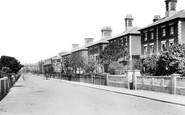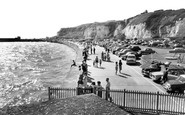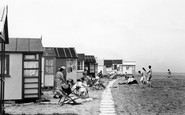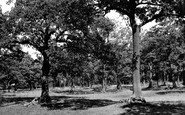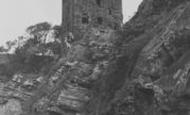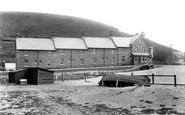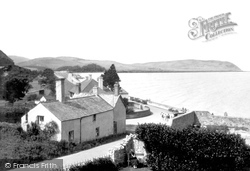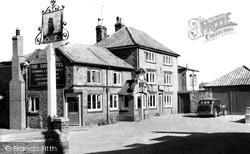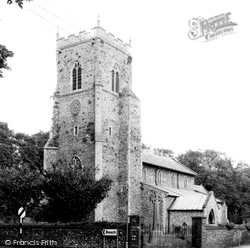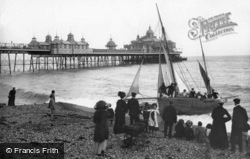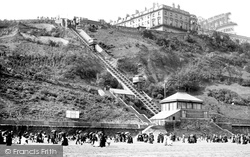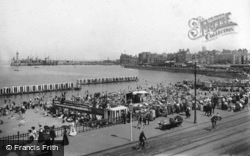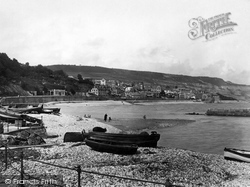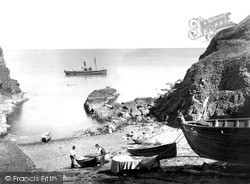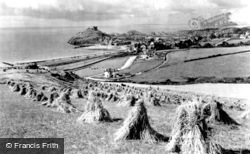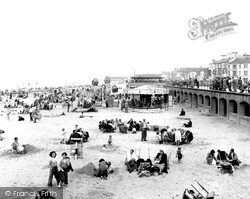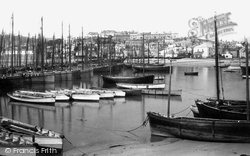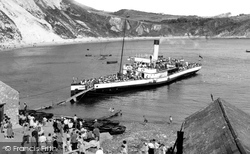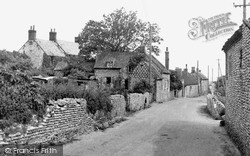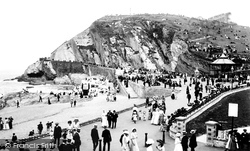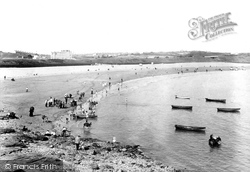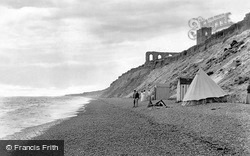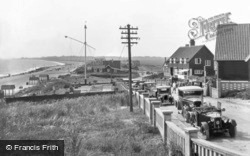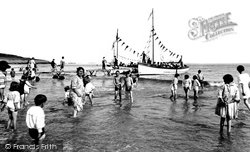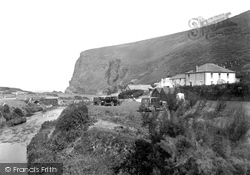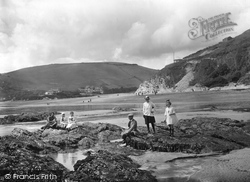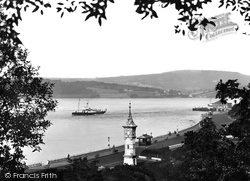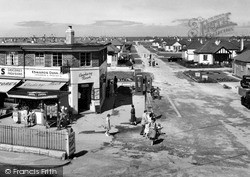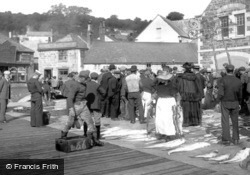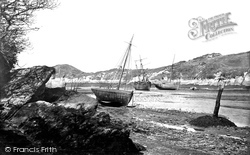Places
1 places found.
Those places high-lighted have photos. All locations may have maps, books and memories.
Photos
11 photos found. Showing results 621 to 11.
Maps
4 maps found.
Books
1 books found. Showing results 745 to 1.
Memories
1,362 memories found. Showing results 311 to 320.
I Loved To Roam The Fields
In the early 1960s Cudworth was a great place to live. Myself along with a group of kids used to go swimming at Cudworth baths, most of us lived on Park Avenue or on Beech Avenue, all exept John Darcy, e lived down Dafield ...Read more
A memory of Cudworth in 1960 by
Bathside Boys
I was brought up at 14, Ingestre Street and always consider myself a Bathside boy. I was very lucky to have my school opposite my front door. Just up the street was Mr.Barneys shop where you could buy 4 black jacks for a halfpenny. ...Read more
A memory of Dovercourt in 1960 by
Best Time Of My Life
My Father Bill Owen made a lovely little caravan and pitched it on Gorselands caravan park in the mid to late 1950's through to 1966 and I enjoyed the most magical time of my life spending lots of long summer holidays with ...Read more
A memory of Swyre in 1960 by
Holidays In Creek Road
In 1960 and 1961 I spent holidays in Creek Road. I stopped in a wooden bungalow called MEON. In the photo of Creek Road I remember the white building was an amuesment hall. I clearly remember Eastoke and the club. In ...Read more
A memory of Hayling Island in 1960 by
The Horse Shoe Bite
The small sandy beach at Newhaven was known as the horse shoe bite. It was completely covered at high tide, but as the water receded, it exposed fine golden sand, ideal for making castles and getting in your sandwiches. A row of ...Read more
A memory of Newhaven in 1960 by
Hardboard Holiday Home.
You'll all go "Oh yes", when I jog your memory that Seaview was formerly named 'Kite Farm Camp'. It changed its name to Seaview around '61/62 when Arthur Fitt the garage owner on the other side of the station bought it from ...Read more
A memory of Swalecliffe in 1960
Green Door Cafe Or Bert's Cafe
Hi All, one of my memories of Grays old High Street was the café. Walking down the High Street toward the beach, on the left hand side was the cafe, it was called the Green Door and was owned by Bert Herrington. He and ...Read more
A memory of Grays in 1960 by
Pillbox On The Cliff
I lived in East Runton as a child somewhere around 1960 and I have a couple of memories. More than likely they are for my own purpose but here goes. I used to play in the white pillbox that was up on the cliff edge. When I ...Read more
A memory of East Runton in 1960 by
Ravenscraig
I remember once after being warned by Mum & Dad not to climb up the rocks the the castle, but my mates talked me into it. Just got up near the top when there was a shout and a couple of Bobbies headed towards us. Off we went down ...Read more
A memory of Kirkcaldy in 1960 by
No 9 East Cliff, West Bay.
My Family moved in to N0 9 East Cliff in 1960, we moved from an old cottage across the beach where I was born in 1955. The cottage was demolished & some Garages were built in the place of the two cottages. Many people ...Read more
A memory of West Bay in 1960
Captions
1,130 captions found. Showing results 745 to 768.
Taken from the Blue Anchor Hotel's balcony, this view looks across its garden to the promenade.
The Ship was described as one of the 'three good inns' of Mundesley in 1845. Among the facilities offered by the hotel were a quoits bed and bowling green.
The parish church is of flint, with a large west tower.
A southern pavilion was added to the seaward end of Eastbourne's pier in 1888 - late Victorian visitors expected piers to be more than just a promenade or an occasional venue for entertainment.
The tramway offered holiday-makers an alternative means of escape from the beach to the Esplanade, other than by the 224 steps cutting through the Spa Gardens, and all for just 1d.
Margate is today a bustling seaside resort on the Isle of Thanet, with many miles of sandy beaches, and typical seaside attractions.
We view the town from the beach below the Royal Standard. The North Wall (right centre) has since been joined to the mainland (in 1979) by a random wall of rough boulders.
Church Cove was a pilchard fishing place, with boats hauled up the steep beach, and there was also a lifeboat station here for a while until 1899.
This magnificent view was taken from the east. The stooks lend period atmosphere to the harvest scene; the view today is far more built-up.
Redcar's popularity for the past 150 years has largely depended upon the attractions of the sea and the beach. A group of roundabouts and swings offers entertainment for the children.
Rows of fishing boats are mostly aground where they are moored in the harbour. Smaller boats are drawn right up to the buildings in the background, for the Wharf wall had not yet been built.
Incredible numbers of peo- ple crammed aboard paddle steamers such as the 'Empress' (centre) which has just arrived in Lulworth Cove.
This scene is characteristic of the North Norfolk coast: the walls and houses are built of whole flints found in the fields or on the nearby beach.
The small beach to the left is at Prechers Rock.
The only attractions on offer here are boat trips and donkey rides; to the far right, on the water's edge, are a number of wheeled bathing machines.
A substantial shingle beach this may be, but it offers no protection to the sandy cliffs. All Saints' Church now stands at the edge, soon to join the lost medieval town in a watery grave.
We are looking along the Benthills road towards Aldeburgh. A variety of impressive cars have parked, possibly marking the advent of day trippers, which Ogilvie did not really want.
Motor launches are moored at the landing stages and are taking on passengers. These stages had to be manhandled up and down the beach as the tide went out and came in.
Specimens of 'Little Trees', a species of deep water coral so named because of its shape, are sometimes washed up on the beach at Crackington.
The cliff on the right now has a row of houses at the top.
Exmouth's long sea front and sandy beaches made sea-bathing a popular recreation from the town's earliest days as a resort. Tourists came for the bracing air and social activities.
The new housing developments of both pre- and post-war Britain most often came with a small parade of shops to serve the new residents.
Newlyn was the first Cornish town to attract the attention of artists.
Trading schooners are beached, waiting for their cargo to be taken ashore by horse and cart.
Places (1)
Photos (11)
Memories (1362)
Books (1)
Maps (4)



